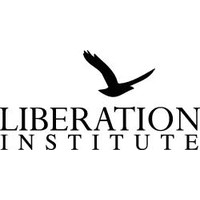Becoming a Home for our Selves: An Introduction to Voice Dialogue Facilitation
I am very honored to be joining the Liberation Institute this Fall along with my wife Maggie. In this piece, I’d like to share about a way of working that we have both trained in –Voice Dialogue–and why we love it so much.
Truly, this practice has tenderized our hearts and minds, taught us a level of self-acceptance and self-love that we had not known before, and invites us to use every challenge in life as a way to deepen in understanding and forgiveness. And in addition to being a healing process, this practice can also be extremely beautiful–and honestly even quite fun. -Eric Rode
An Example
First, let’s give an example that we can work with together through this article.
CLIENT: [Sighing, her shoulders collapsed] I work so hard all day. When I get home from work, I really want to do things that, like, matter–I mean I want to work on my music, meditate, read, exercise, cook a healthy meal–and–I really want to find a partner! I’m still alone at thirty six… But after work, almost every day, I end up just smoking some pot, eating just whatever is around, and then watching a bunch of TV.
“I did this amazing psychedelic journey a few months ago when I felt so much love–I mean at one point I can only say I felt the upwelling of this pure, sacred compassion flow through me…I’m not, like religious, but it felt like deep kind of Motherly love was in my heart…and I felt so inspired…I was sure that after that experience I would just want to share my love in the world everyday through my music and through my relationships…but I’m totally failing and just falling back into the same old patterns. I feel like I’m making no real progress at all.
What is Voice Dialogue?
The way we practice it, Voice Dialogue is a present-moment-focused, somatically based way of contacting, understanding and integrating the many internal “selves” that make up each of us.
Through the process, we learn that we identify with some of our inner selves, and reject others. When we are feeling “stuck” in addiction, depression, anxiety, obsession, and so forth, it signifies that we are either rejecting an aspect of our inner experience, thus preventing it from unfolding naturally into true understanding, or that we are totally identified with an inner self, and as a result being thrown off balance.
In the above example, as a Voice Dialogue facilitator I can identify at least four voices that are asking to be understood, and I am throwing in some initial hypotheses about them:
The Pusher: This self is used to working very hard at its day job. When the client gets home, her Pusher wants to continue to work and make the most of her time. ❖ As her facilitator, it seems to me that this Pusher has been around for a
long time, running the show. I wonder if perhaps she (the Pusher) fears wasting her time or not making progress, and maybe she learned in youth that anything truly valuable must be worked hard for–in other words, that true value is dependent on doing something. I wonder if the Pusher has turned the music, the meditation, etc., which began as inspirations, into simply more work projects–more shoulds.
The Chiller: Though this self shows up most every day, the client is rejecting, or partially disowning its presence. But when she is exhausted after a long day, this self comes up and just wants to take the pressure off, to enjoy.
❖ I am inclined to believe that the chiller is not an enemy, but actually holds an important gift for the client which she is so far not open to embracing. I might ask the Chiller: What is so nourishing about smoking pot and watching TV? Are you able to come out at work at all, or is relaxation basically impermissible at work due to the Pusher’s control? What did you think about that psychedelic experience?
The Inner Critic: This voice makes our client’s work at understanding the Pusher and the Chiller a lot more difficult. Our Inner Critics are often at the center of keeping us in our old patterns; kept constantly under their evaluation as if they are unforgiving parent, it is hard for us to take risks and try something new . This voice is constantly telling the client how she is failing the Pusher’s demands–for instance, it says to her “Gosh, you really have totally failed to integrate what you learned on that psychedelic journey.”
❖ As a facilitator I hypothesize that this voice is quite dominant, and creates a lot of the exhaustion which makes the client collapse entirely into the Chiller’s zone each night.
The Compassionate “Loving Mother”: It seems that on her psychedelic journey, the client touched into a very beautiful and more disowned self–the archetype of the Mother who responds to the pains of the world with an abundance of love, inspiration, and beauty.
❖ What keeps this self relegated to far off in the heavens, and what conditions in that psychedelic experience has allowed it to come forth? How might it be hard for the client to be open to this upwelling of compassion when she is so identified with working hard (Pusher) and being hard on herself (Critic)?
Cultivating Understanding Rather than Attempting to Fix
In Voice Dialogue we do not attempt to “fix” our selves.
That might seem simple, but it’s pretty radical. How much of the day do we usually spend trying to manipulate our inner and outer worlds?
Rather than try to fix, Voice Dialogue aims at broadening our understanding of what is happening in our inner world. When we cultivate this Center Presence which can hold all the tensions of opposites inside ourselves, we spontaneously move toward health, vitality, connection, and wisdom. This can be difficult and even frightening initially, because most of us lack the trust that in letting go of control our being will naturally find a state of balance–we think we need to control and manipulate our inner world. All of this is part of the beauty and challenge of the practice of Voice Dialogue.
A Brief Glimpse of the Process
Listening for Selves
First, the client comes in and shares what they are going through–this can include what is happening in their inner-world, in their relationships, work, or dreams–anything. As the client shares, the facilitator will be listening with a gentle ear for the different inner selves who are alive within the client–very often, there will be a conflict in the client between two selves who have opposite views on what is important and what the client should do.
After talking some more and understanding the situation, the facilitator and the client decide on an inner-self they would like to hear from. When they are ready to facilitate a self, the facilitator asks the client to physically move over to either side in order to find a spot in the room where this self can be–this makes it a lot easier for the client to truly move into becoming and expressing as this self. This can sound a little strange or artificial, but we have found people quickly get the hang of it, and embodying different parts can become quite natural. If it feels unnatural, then this is itself super interesting information for us to work with–for instance we might ask who inside of us holds the belief that we are not “theatrical” types? Truly though, this is not theater nor performance, this is just letting ourselves consciously be the various selves who already inhabit our being.
Exploring one Primary Self
So, with this client in our example, we would probably start with the self that is most primary–the Pusher. We would allow the Pusher the space to speak in an uninhibited way. As she does, we are learning about why she thinks work is so important, where she learned that, what she wants to get out of her time after work, etc. This isn’t just mind-based talk therapy–we are not just witnessing the content of what she says, but actually spending time with self and getting to feel her energy.
The Center: Separation from the Self
After that conversation feels complete, the facilitator will ask the client to move back to what the founders of voice dialogue called “the aware ego process.” Since this is just a little clunky sounding, Maggie and I like to call this aspect of our being the Center. This is the place that can embrace all of the selves, and that can make conscious choices through holding all the conflicting desires and opinions.
The Center is the essence of Voice Dialogue. The more we can learn how to embrace the selves and not be caught up in them, the freer we are and the more contact we have with what’s really true, and not just a conditioned belief of one of our selves which we invariably picked up from someone else.
How Does Expressing the Selves Heal?: One Distinction from IFS
We find that this modality strikes a beautiful balance between giving active expression to one’s selves and their emotions, and learning to not have to act out what the selves want, but to hold them in awareness and calmness. Sometimes it is really helpful to express–to let a judgmental self be witnessed being angry and critical, for example, or to let an afraid child part curl up in fear. Embodying these parts allows us to really feel them, rather than merely talk or think about them.
Maggie and I both spent two years living and training at a Zen monastery, which was actually where we encountered Voice Dialogue for the first time. It was revolutionary for us to learn how to stop getting swept away in the current of worries, plans, and judgments, and simply abide as silent, loving awareness.
However, as we sat for hours and days simply watching our thoughts and emotions, and studying ourselves, we noticed that some inner voices were really sticky–we kept seeing them again and again. It was very powerful for us to learn this practice in which we did not simply sit with them, but were able to embody them and express them–for this seemed to allow us to deepen our intimacy and acceptance of them, and recognize the ways in which we were holding these parts at an arm’s length by being our calm Meditator selves.
In many ways, Voice Dialogue and IFS are extremely similar. One of the main differences is this emphasis on expression. Whereas in IFS the client speaks internally to the inner parts and then reports back to the therapist, in Voice Dialogue we actually get the chance to feel what it is like to be that self. By moving and speaking like the self, we are very often surprised; the part often is different than how we thought it was going to be. And when we move back to the Center, we are able to feel very distinctively how we can separate from this part of ourselves. We have great respect for IFS and draw on many of its principles–and we find there is a unique power to actively embodying parts of ourselves that we have been identified with or that we have disowned.
How Does Abiding as the Center Heal?
So this active expression of the Selves can cultivate understanding and move stuck energy. But psychologists are rightly wary of catharsis without purpose; these emotional expressions don’t heal by themselves–what is really deeply healing is for these movements of emotion to be witnessed and understood by the calm, connected, compassion Center, who is not dominated by any of the desires, rules, or beliefs of any of the Selves.
As children, when we had uncomfortable or overwhelming experiences, we needed our parents to hold this space of compassion for us. When, for many of us, our parents weren’t there to hold this space, it was too much for us to hold on our own, so we rejected the experience and in some way blocked it out. Voice Dialogue is a way of truly learning how to parent ourselves–to hold this space within. We learn that this Center has far more capacity to experience the pains and the blisses of life than we thought. When we, from the Center, embrace our experience, it unfolds naturally for us, and the deeper qualities of our soul–strength, joy, peace, compassion, self-value, can express themselves organically.
This Center is a deep medicine we each need, and indeed we each are. Beyond us as individuals, our world is in such a state of polarization. The more we can find this tension-holding Center space within ourselves, the more we can support our communities, nations, and world in finding balance, reciprocity, and reconciliation.
What Issues Can it Support?
Consider checking out Voice Dialogue if you:
-Want to live less from unconscious habits and start living from a place of freedom, choice, and awareness
-Are attempting to integrate non-ordinary experiences into daily life (for instance you want to learn how the experiences you have had in meditation or with a psychedelic medicine can be embodied in your day-to-day experience
-Notice your Inner Critic is often present judging you and attempting to control -Are working with patterns of shame, doubt, self-hatred
-Are working with anxiety, depression, obsession, fear
-Are feeling “stuck” in any kind of way, or are experiencing inner conflict of any kind -Are curious how the challenges of relationships can support deeper inner unfoldment
-Notice you often are judging others
-Are in the midst of life transitions or decisions
-Want to contact a deeper source of motivation and inner-guidance other beyond following what you think you”should” do
-Are curious about deeper spiritual unfoldment that is usually blocked by the patterned conditioning of these inner selves.
You might especially like Voice Dialogue if you:
-Are frustrated with how talk-therapy often keeps people in the head, talking about experiences, rather than experiencing more deeply
-Want a kind of therapy that engages the body, the heart, and the mind and values all these three centers equally
-Enjoy working with dreams (Voice Dialogue has a wonderful way of dreamwork)
Email info.pdx@liberationinstitute.org expressing your interest in Voice Dialogue work to begin this journey today!
Author info:
Eric Rode
Eric is supervised by Elizabeth Hoke LMFT T1440




